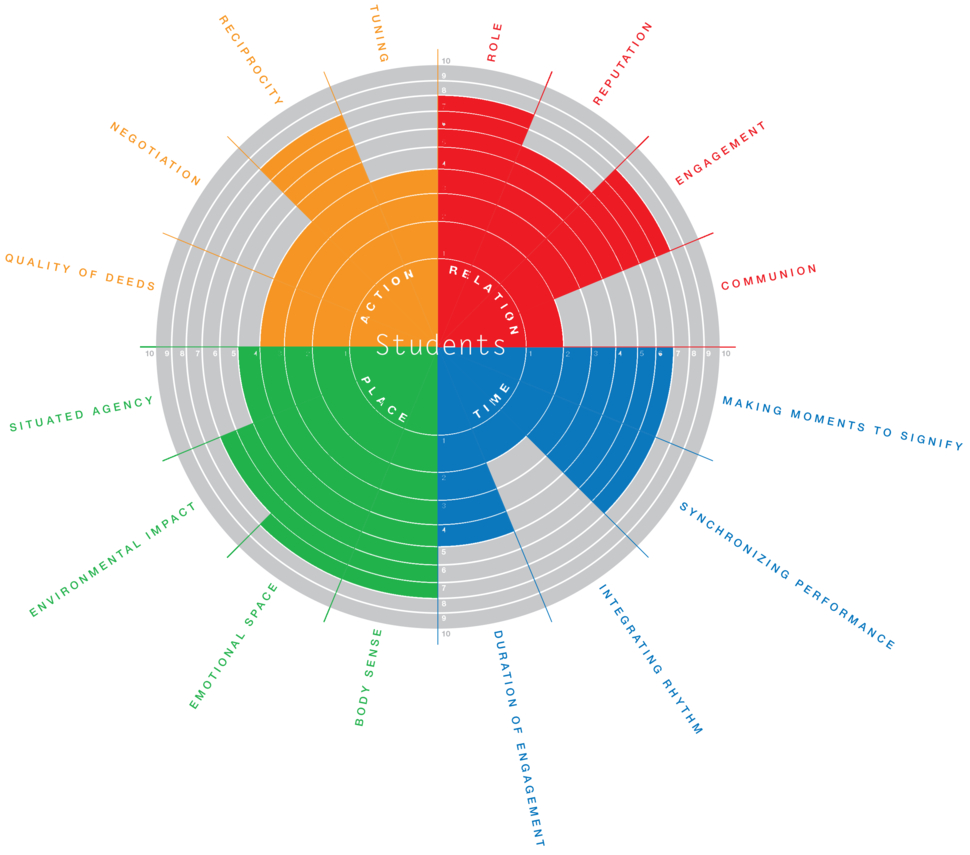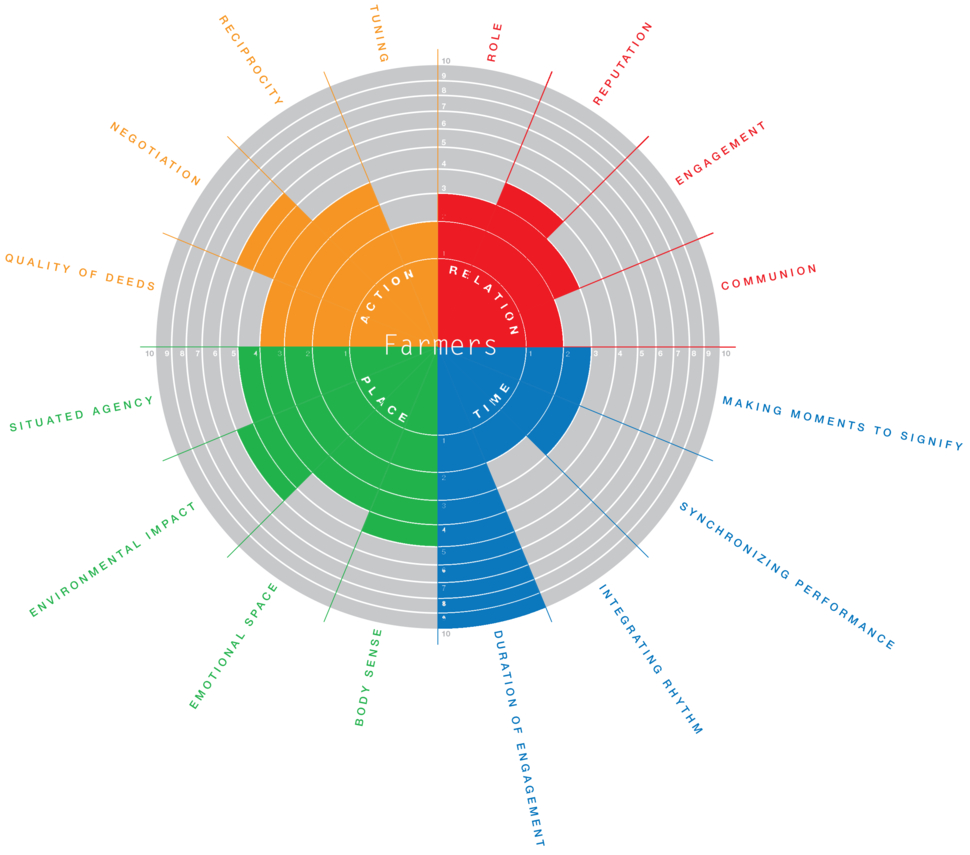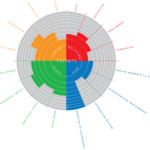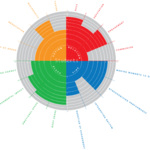Yutpa Graph Students, made by Esther van der Valk
Yutpa Graph Farmers, made by Esther van der Valk
The Yutpa graphs help us to make the risk analysis. We made two Yutpa graphs, one where we analysed the farmers and in the other we analysed ourselves, the students. If you compare the two graphs you can see a big difference in the role and the engagement. Therefore this is the design area for Fedha Safi. The role which we have as Dutch Students from TU Delft can be impressive for the farmers and the students on the University. We would like to reduce that impression as much as possible. And we would like to create a big engagement among the farmers and the students with our project. To achieve this engagement and this role reduction we have to look at the bigger picture. It is about creating trust.
A very important thing in our project plan is the collaboration with the farmers to achieve the main goals in our plan. For good cooperation, it is important that our team creates trust among the farmers, but creating this trust is very difficult. So tactics have to be developed to create this trust which will reduce the risk of not being able to cooperate with the farmers. A good tactic for the team would be to adapt to the habits of the farmers, for instant by waking up at the same time as the farmer to buy food on the local market, to dress the same and to mix in their traditions and parties. There is a chance that it is difficult to communicate with the men in Bondo since the team consists of three women. Therefore it would be a good idea to build up a relationship with the women in Bondo, because this contact will be much easier and will result faster in a trustful relationship. Another way to create more trust in the project would be by explaining the farmers the project face to face, maybe organizing lectures to explain the project very clear. The chances are that the farmers will not understand English, therefore we need to make our project plan visual and there will be an interpreter during the presentation of our lectures if needed. To visit the farmers at home and to explain them face to face is also a good way of creating trust, this is in our culture though very usual but we are not sure if it is common in Kenya as well. This also applies for the rest of the ideas of creating trust. So when our team is going to Kenya the first thing to be done is learning the habits of the society in Bondo and then making the final steps for a good plan of creating trust.
Another big risk would be if there will not be enough building blocks to build the water tank. It is possible that it is very hard to find machines that can help with digging the well or to find materials to build a water tank. Our team will tackle this problem by setting up a network via Mr. Ndegwa, our supervisor and a professor on the university, and via Andika the professor of agriculture. Through this network we are ensured of the good contacts and ensured of a good price-quality ratio.
Another big risk will be created when the project plan will not result in enough money for the farmers to build their own greenhouse. This can have two reasons. The first reason is because of the inflation. The plan is that after 4 years the farmers have saved enough money to build their own greenhouse. It is possible that the inflation will be so high that in 4 years the saved up money will not be enough. So we have to find a solution for the inflation problem. For example by letting the farmers invest in something different during the 4 years, in this way the money will stay at the same value and the farmers can sell their investments after 4 years, which results in enough money to build their own greenhouse. Another solution would be to set up a company that sells the greenhouse to the farmers as a loan against a small interest, or to use micro-finances. The second reason for this risk to appear is the insurance of the amount of profit that the farmers will make by using a greenhouse and selling their products to the university. To be sure that the farmers make enough profit, our team has to do research on the income and issues of the farmers.



